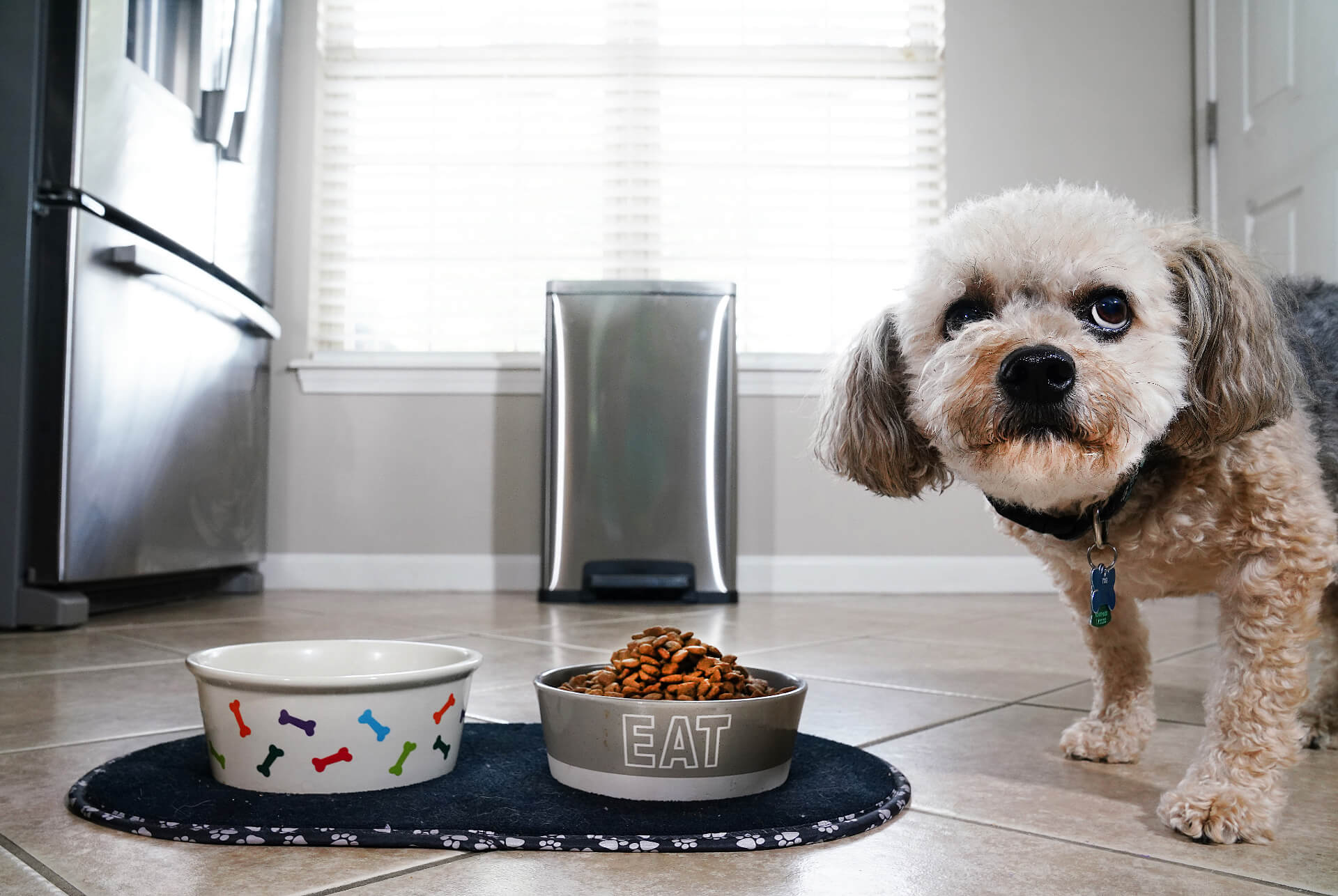Is your pet's food making you sick? Study finds many don't know the risk
Each year, more than 50 million Americans develop gastrointestinal issues that lead them to question the safety of their most recent meals. It’s entirely possible that their distress could be caused not by the food they have eaten, but the meals served to their furry friends.
A study led by Purdue University’s Yaohua “Betty” Feng, an assistant professor of food science, showed that many Americans don’t wash their hands after feeding or playing with their cats and dogs and aren’t aware of the risk of contracting a foodborne illness from those activities.
“Almost all dog and cat owners interact with their pets closely like cuddling, sleeping with them, kissing them, but after those interactions fewer than one-third of them wash their hands with soap,” said Feng, whose findings were published in the Journal of Food Protection. “They don’t really consider that they could get sick or that a foodborne pathogen could be transferred from their pet to themselves.”
The U.S. Centers for Disease Control and Prevention estimates that pathogens such as E. coli and salmonella sicken nearly 48 million people, hospitalize 128,000 and kill around 3,000 annually. There is no data on how many of those come from pet foods, but there have been more than a dozen pet food recalls in 2020 due to the presence of a foodborne pathogen. Last year more than 150 people were sickened by salmonella in pig ear dog treats.
“Some dogs and cats do not have symptoms, even if they were contaminated with foodborne pathogens like salmonella. There’s potential for them to share those pathogens with their owners when interacting with them,” Feng said.
According to the survey of more than 1,000 cat and dog owners in the United States:
- 93 percent of pet owners cuddle their pets, 70 percent allow the pet to lick them, 63 percent sleep with their pets, and 61 percent kiss their pets.
- Only 31 percent wash their hands after playing with their pets, and 42 percent do not wash their hands after feeding their pets.
- 8 percent reported eating pet food and treats themselves.
The study showed that 78 percent of people were not aware of recent pet food recalls or outbreaks associated with foodborne pathogens in those foods. One-quarter of people do not consider dry pet foods and treats as potential sources of these pathogens.
Raw meat or raw animal product diets are growing in prevalence for supposed health benefits. The study showed that about 25% of respondents feed their pets raw foods, but about half of those people did not report washing their hands after those feedings and allowed their pets to lick them.
Feng said the results suggest that pet owners need more education about the safety of pet foods and proper handling of food and pets to prevent contracting an illness. She plans to develop materials that will address those issues.
Some tips to keep pet owners from getting foodborne illness include:
- Wash hands with soap and water after preparing food for pets, petting or playing with pets, and before preparing food for people.
- Avoid feeding pets raw meat.
- Handle and store pet food carefully to avoid cross-contamination.
- Keep up with pet food recalls and keep records of pet food lot numbers and other information for potential tracking.
“We’re not saying you shouldn’t hug your dog, but you should know the risks and how to protect yourself against the possibility of contracting an illness,” Feng said. “Learning the risk to your pet will make you an informed pet owner and avoid some of the pitfalls that could make you or your pet ill.”
 Many Americans are unaware of the potential risk of contracting a foodborne illness from pet food, a Purdue University study shows. Purdue University professor Yaohua “Betty” Feng said that washing hands after playing with and feeding pets would significantly reduce the chances of pet owners getting sick. (Purdue Agricultural Communication photo/Tom Campbell)
Many Americans are unaware of the potential risk of contracting a foodborne illness from pet food, a Purdue University study shows. Purdue University professor Yaohua “Betty” Feng said that washing hands after playing with and feeding pets would significantly reduce the chances of pet owners getting sick. (Purdue Agricultural Communication photo/Tom Campbell) 




